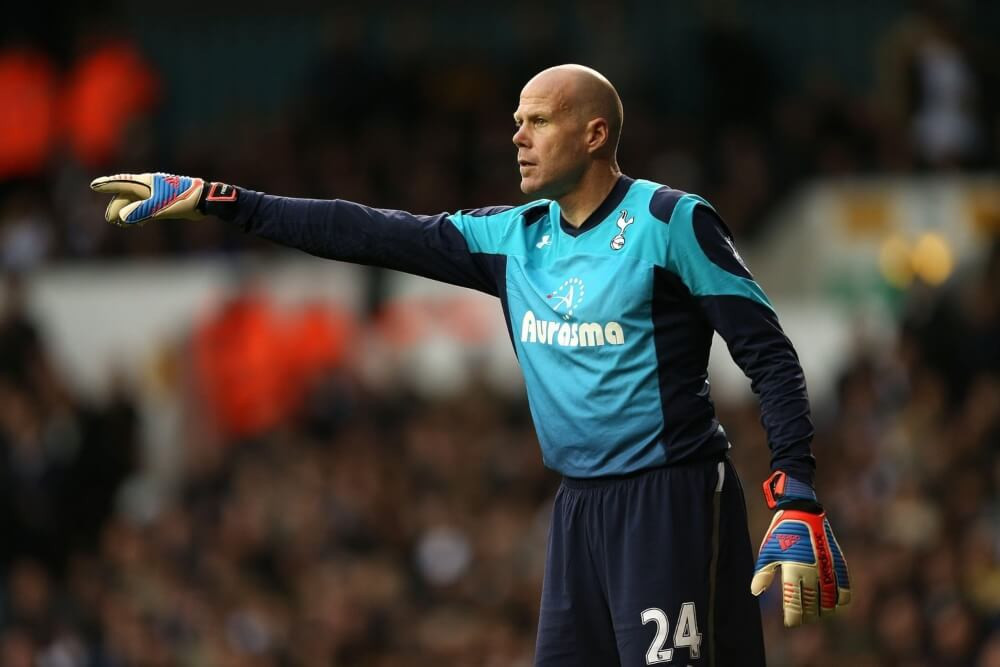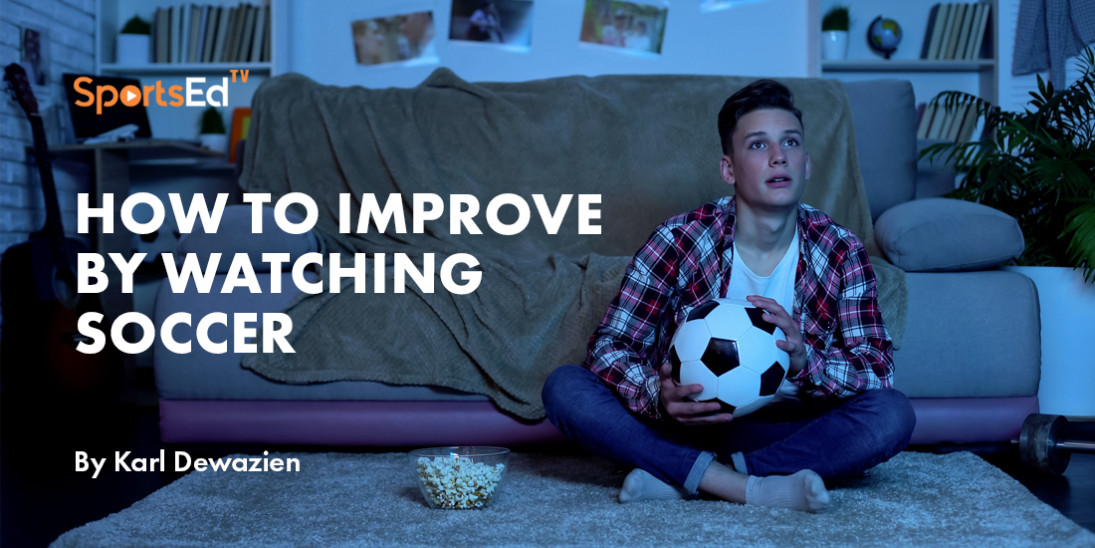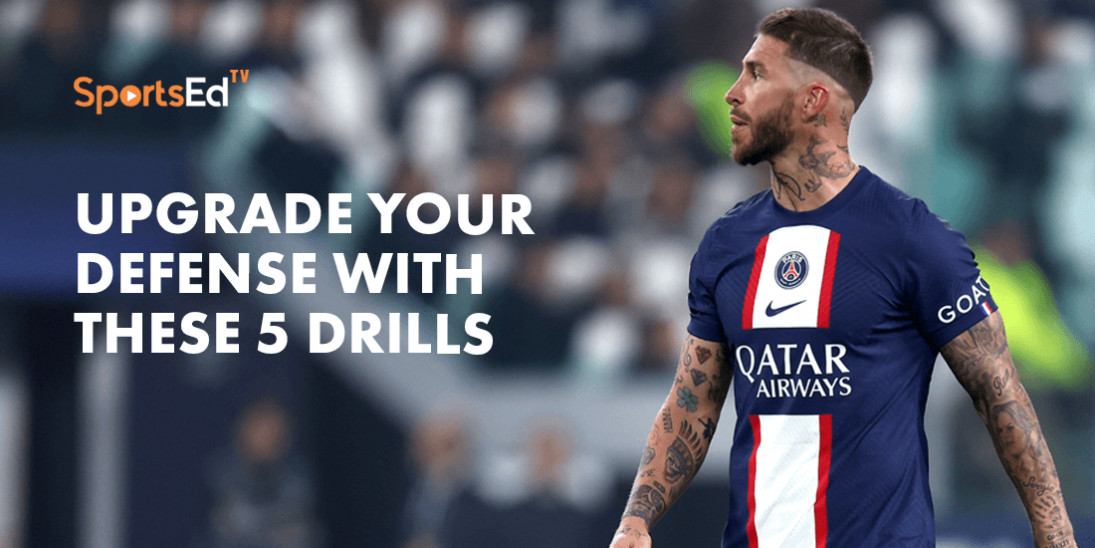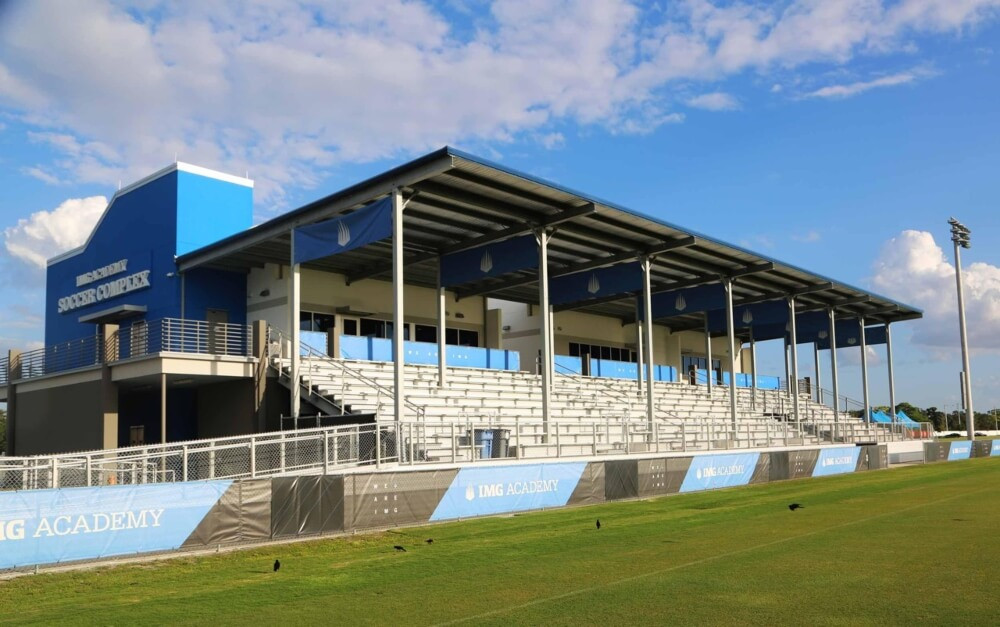Soccer
Welcome and thanks for visiting...

SportsEdTV Talks With Brad Friedel

SportsEdTV's Coach Eric De Sousa interviews star goalkeeper and coach Brad Friedel who shares his experiences and thoughts on the state of U.S Soccer.
The following is an edited version of the interview; the entire interview is available by listening to the one-hour podcast.
Eric: How old were you when you knew you wanted to be a keeper? Goalkeepers are a special breed, so was it something you always wanted, or was there a certain moment?
Brad: It wasn't what I always wanted to be. I played outfield, like most kids did growing up, usually upfront, like most goalkeepers. I knew probably at 14/15, around that age. I played basketball, ice hockey, and tennis at high levels. I grew up in Cleveland, Ohio, which is a basketball, baseball, and American football city, but I love soccer.
My true loves are really ice hockey and soccer. I would have gotten coached periodically in goalkeeping, not often, but I made the state team and, when I got to the state camp, I usually made the regional team.
But then, I would have to choose between hockey camp or soccer, so I never went to the regional events. No one in the national program even knew who I was. So when you're asking when I truly focused on being a goalkeeper, 14 or 15.
But did I think I would be a goalkeeper?
I have to be honest, probably not until UCLA started recruiting me, which then I was 17, 18 years of age.
Eric: It’s interesting you bring up hockey. In U.S. soccer, there are a lot of developmental programs that don't think children who want to be soccer players should play other sports and should focus on soccer. Do you feel that way?
Brad: I couldn't disagree more with that attitude.
I usually answer it like this: I've never, ever competed against, or played with a goalkeeper in my team that was a bad athlete at the top level. It doesn't happen.
They're either really good at pool, or snooker, ping pong, cricket or good at something, and most outfield players, the top ones, were too. When I was playing in England, the Australians, the Kiwis, the English, the Irish, were all good at other sports because they all played them.
You learn so many movements and use so many different muscles. Clubs want players to either do pilates, yoga, or martial arts. What's the difference?
I think we've structured things almost too much.
Eric: When you decided that you wanted to be a goalkeeper, was there somebody that you modeled your game after, maybe someone you really looked up to?
Brad: Well, the only two teams that I was really able to watch in Cleveland growing up were Liverpool and Bayern Munich.
Jean-Marie Pfaff at the time, mind you his goalkeeping style and mine are two completely different things; they're polar opposites. He was different, but I got to watch him playing with one of the best teams in the world.
With Liverpool, it was Clem (Ray Clemence), and I'm not trying to compare myself to Clem, but there are a lot more similarities.
After that, it was Bruce Grobbelaar who was, again, completely the polar opposite of how I was as a keeper, very eccentric and exuberant. Those three were on TV the most.
However, I would say the most influential was my goalkeeping coach when I got out to UCLA, Tim Harris, who played indoors and got capped once by the national team. I would say, more on the psychological side of things, he would be far more influential on my style of play and who I am than somebody else.
Eric: In Brazil and other countries, the best athletes play one sport and have one love for the sport. They go to school, home, the beach, and play soccer. For us to compete with these other countries, is it going to take that passion and desire from a young age?
Brad: I was with DeAndre [Yedlin] when he first came to Tottenham, and he said openly in his article published a day or two ago, which said, “in MLS it is a different feeling when you win or lose a game as opposed to over in Europe because of relegation and promotion”
He said it's a different feeling and I’m not trying to say that the players don't care in MLS, because I do think the vast majority of the players that I coached at New England did care. But it's different.
In the MLS, it's not a do or die if you win or lose. Some players that are on option years have to fight for the contracts, yes. But the bonus money is very small, so they're not fighting for the bonus checks.
And again, I think MLS is at a great point. It's remarkable where it is, and I'm not trying to disparage it at all. It's just different, and that goes back to youth development, when it becomes do or die, that is when things really start to ramp up.
When we get all the best athletes, that's when things start to ramp up. I don't know in my lifetime or your lifetime if it will ever happen, because here you have a lot of money, big businessmen and TV coverage for the other sports.
Eric: In your career, you faced scoring legends. What specific difficulties come to your mind when you're playing against the world's top talent?
 Brad: The specific difficulties as a goalkeeper is when they get put in certain positions, the shots sometimes become un-savable. I've played with a lot of players where they need 6 or 7 chances to score.
Brad: The specific difficulties as a goalkeeper is when they get put in certain positions, the shots sometimes become un-savable. I've played with a lot of players where they need 6 or 7 chances to score.
The legends need 1, and it's frustrating sometimes.
Take Thierry Henry, he would come in on the goalkeeper's right-hand side, his left of the field, and he would come in, he had so much pace and power and he'd get himself in that perfect angle. If you cheated to go to your left, he'd tuck it to your right. If you cheated to the right, he'd tuck it left. If you stayed still, he would tuck it inside that far post to a point where to save it is the save of the year, and that's what they do.
Alan Shearer was the same, he was asked by someone, "when do you look at the goalkeeper?" and his comment back to him was, "what goalkeeper?" And his point was, he goes, "I know from the positions that I'm in, where I want to strike the ball. To the goalkeeper, if he saves it, he saves it. Fair play to him, but I know where I'm headed."
I think the best of the best guys are just so good at their trade, but one thing I have to add on that, I've never played with or against one of those guys that didn't work at it.
Robbie Fowler, incredible finisher of the ball, and every time he was shooting, whether it went in or not, you're either having to make a save or it's missed just by a centimeter.
Those guys, they're remarkable for a reason because they do the repetition, repetition, repetition, and hard work.
So to answer your question, what's frustrating is that you would get in certain positions where no matter how good you were, you're not saving it. And when you did save it on the odd time, it was one of the very, very, very good ones in world soccer.
Eric: Going back to the USA national team now, what's the different type of feeling that you have when you're representing your country rather than just playing for a club?
Brad: For me, anyway, it was different from younger age up to the older ages, because when you're young, you're still immature emotionally. I'm not saying that you're just immature, but you are, and you don't realize what you're doing.
It's almost like it was just that next stepping stone, so I moved out to UCLA, "Oh, fantastic!" And then you get called into the Olympic team, "Oh, fantastic!" Sometimes it just automatically seems like it's the next step and you take it for granted.
I had two experiences: One '92 Olympics,[in Barcelone] I was an underage player. It went by in a flash, I can hardly remember it.
And then in 2000, I went and played as an overage player. We made it to the medal rounds; it was slower and I was able to absorb it all in.
It's just different when you're older, and you understand the impact that you have playing for your national team back in your home country.
I also have to say I found qualifying far more pressure-filled than the actual World Cup. In qualifying the United States, with the exception of maybe the game away in Mexico, you're supposed to win every game.
Eric: How do you feel about young Americans going to Europe? Do you feel this helps progress the U.S. soccer team, or do you think we should be more focused on keeping the young talent here?
Brad: Both. Europe is a mental thing as well. It's not an easy thing over there, so if you're willing to persevere, deal with it, get through it and you have the talent, then I think it's a better place.
But, if you don't, it doesn't mean that you're a bad player, because if you go over there for three or four months and want to come back, it probably hurts you more in your development than if you stayed at MLS.
MLS now has some really good coaching, from the guys that are employed as head coaches in the league down to the academies. It just keeps getting better and better each year.
You can have a really good career and a really good development pathway in both.
I think if you're one of our, the top guys, you should want to go play with the best. And the best at the moment is not in MLS globally. Not saying it won't get there, and I'm not saying the MLS is bad. I'm just saying that if you have the opportunity to play against Bayern Munich, and you have the opportunity to play for Chelsea against Man United, Man City, Tottenham, Arsenal, Liverpool, Everton, and the whole Premier League, then that is a great place to be and really good for your development.
Eric: Now that we will be hosting the World Cup, do you feel that we're on the verge of finding that our MLS team will one day be able to compete with the world's top clubs?
Brad: It's a yes and no.
But the fact of the matter is that until the kids in the country and the better athletes want to be soccer players - and the other thing is, right now, we have years, of evolution to occur - there's no other way through it.
So until that one guy who grows up to aspire to be that great running back or the great wide receiver wants to be the best soccer player, then that's when we will compete truly with Brazil, Germany and England on a consistent level.
Can we compete with them with our national team in one off games? Absolutely.
Eric: Going back a little bit more to the goalkeepers now, we live in a sweeper-keeper generation where a goalie has to be just as good with his feet as any other player on the field. How have you seen that progress through your playing and your coaching careers?
Brad: Here is a fun fact for you then. The first FIFA recognized game ever, where a goalkeeper couldn't pick the ball up was the '92 Olympics.
So I grew up playing everything where you could pick the ball up. I think probably of all the rule changes in world football, that's the best one. It helps speed the game up. You couldn't kill the game off.
I was definitely not terrible with my feet by any stretch of the imagination. This isn't a regret, but it would have been great learning without that rule. It would have been fantastic to be able to switch and do a half follow with your left foot and your right foot and be able to really be the 11th player when you have the ball.
I still think the most important thing is keeping the ball out of the back of the net, so I would still rather have an athlete that's brave and then help them get better with his feet than some young kid who is good with his feet, but he's afraid to get hit with the ball. And we see that a lot across the country.
Eric: I would like to take you back to a memory of February 21st, 2004. If you recall, it was a game against Charlton where you were up for a corner kick, and you had a bit of a quick reaction with your feet as well. Only the second goalkeeper in the history of the Premier League to score a goal. Can you take us into that moment?
Brad: We were losing 2-1. It was towards the end of the game, and I went up and we equalized. Brett Emerton took the corner while Gallagher went to the far post. Paul Gallagher scuffed his shot, I think, that deflected into my path, and I turned to him and scored, but then from the kick off Charlton came down, scored, and we lost.
Eric: I'm sure you're still feeling a bit of a victory after that. Only five goalkeepers have ever scored in the Premier League, and you're the second to do so.
Brad: Let me see if I can name them I know Paul Robinson scored against Ben Foster on a really strange - bounced over him. I think Tim Howard scored one long, right?
Mart Poom had one of the best headers when he was playing with Darby. And then Schmeichel scored a volley at the far post when he was with Villa against Everton.
Eric: What intangible would you say is most paramount for a young keeper to focus their energy on?
Brad: I always tried to find as many uncoachable talents in the players that I could.
You can't make someone fast. You can make them faster, help them and do injury prevention, but they're either faster or they're slow.
If you are not athletic and if you are not brave, you cannot be a goalkeeper at the highest level. If you don't have those two -- you can go get a college scholarship, I'm sure somewhere, which is fantastic, but to be at the at the top -- because if you have all of this athleticism and you're brave, you can be taught all the techniques, and you can be taught how to be good with your feet.
If you have difficulty concentrating, there are elements, people that you can speak to, coaches you can speak to; you can go to the sports psychologist.
If you're not athletic and you're playing against Dennis Bergkamp and he's passing the ball to Overmars, and Overmars is laying it off to Henry, and you can't move your feet and your hips the three different times and try to save a shot that goes back the other way, you're not going to do it. You're just not going to be able to do it.
And again, bravery, it's not like you can go out in the backyard and say, "OK, dad, hit this ball in my face 100 times." It's like being a boxer, I guess.
And by the way, not just bravery with getting hit. Bravery on being able to make a mistake and then not make it a second time.
Eric: Now what are you up to now in the world of soccer?
Brad: I've opened the Miami office for Promeo Sport. We are now the sixth or seventh largest globally. We have offices scattered all through Europe, and now I'm running North America and getting ties with South America and Mexico.
I am also doing some on-field things with the National Center of Excellence, and an Ex-teammate of mine, John Curtis, runs that up in the Northeast, and we're expanding that as well, so I'll be able to get on the field a little bit and get my coaching bug going. I can never sit still for one, and I can't ever get out of this game; not that I'd want to. I don't even want to attempt it.
When opportunities arise, you never say never in this game. So, in what I'm doing now, and I'll take the experiences and what I learned, and what I liked, and what I didn't like into this one, and then we'll see what happens.
I'm nearing 50 years of age, so maybe this is the last - this is what I'll do for the rest of my career. We'll see. You just never know. But I will be involved in the game.
Eric: Would you ever consider just playing again for fun?
Brad: Once or twice I jumped in... I've been invited many times to play in on games, and I would definitely consider the big charity games that raise money; I have considered that, of course. It just hasn't worked out with my schedule too often.
But even those games, there's nothing worse than getting scored on 13 times in the game! Nobody defends in those games, plus, you're old, so you just don't want to hit the ground anymore. I played until I was 44. I had enough diving in my life.
Eric: Brad Friedel, from all of us at SportsEdTV, we are so grateful that you spent this time with us. Thank you so much.
Ed: Conversational edits made for clarity.




